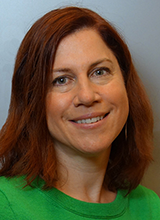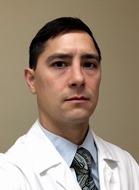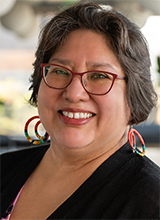
Scholarly Expertise: Psychiatric problems


Thomas Soeprono
Personal Statement
I am an Assistant Professor in the Department of Psychiatry & Behavioral Sciences at the University of Washington Medical Center. In addition to general psychiatry, I am an expert in Consultation Liaison Psychiatry. My primary clinical roles are in the inpatient psychiatry consultation service at the University of Washington Medical Center and Harborview Medical Center.
I earned my bachelor’s degree from the University of California, Berkeley and his M.D. from Loma Linda University in California. I first came to the UW as a psychiatry resident, and then continued on for my fellowship in Psychosomatic Medicine.

Myra Parker
Personal Statement
Myra Parker, JD, PhD is an Associate Professor of Psychiatry and Behavioral Sciences, and Director of Seven Directions: A Center for Indigenous Public Health, based within the Center for the Study of Health and Risk Behaviors, University of Washington. She received her doctorate in Health Services at UW School of Public Health, and has been a member of the faculty since 2014.
Dr. Parker’s research and clinical interests include: (1) cultural adaptation of alcohol and drug interventions among American Indians and Alaska Natives (with a particular focus on tribal college drinking harm reduction), (2) development and testing of parenting interventions to support early childhood development in American Indian and Alaska Native communities, (3) co-morbidity of substance use with depression, suicide, trauma, and PTSD, (4) research capacity development, including ethical aspects of research, for tribal and urban Indian communities; and, (5) dissemination and translation of evidence-based prevention and intervention approaches at the individual, institutional, and community level, including policy development. She has worked with tribal and urban Indian communities across the United States on these topics.

Jesse Bledsoe
Personal Statement
| I am interested in how cognitive development and brain development are affected in children experiencing cancer and comorbid psychological disorders. My research interests include using structural neuroimaging and neuropsychological assessment methods to evaluate brain-behavior relationships and development. My clinical interests overlap with my research interests. I am a clinical neuropsychologist with the Seattle Children’s Neuropsychological Service and conduct neurocognitive evaluations with various pediatric populations including children with brain tumors, leukemia, and genetic disorders. |

Gregory Simon
Personal Statement
I bring a practical approach to mental health research, working to break down barriers between research and real-world health care.

Shannon Simmons
Personal Statement
I am Medical Director of Inpatient and Acute Mental Health Services at Seattle Children’s Hospital, where I provide clinical leadership and clinical care to patients with a broad range of diagnoses and presenting concerns in the Psychiatry and Behavioral Medicine Unit, Partial Hospitalization Program, and Emergency Department Mental Health program. I aim to provide high quality, family-focused, evidence-based care as part of a multidisciplinary team. I am highly involved in educating residents, fellows, and medical students, and serve as Associate Training Director for Inpatient Psychiatry for the child psychiatry fellowship program.
Taylor Black
Personal Statement
I came to the UW to train in psychosomatic medicine and to work in a complex comorbid population as a clinician and a teacher. Most medical and surgical patients served at Harborview will have psychosocial needs; often these are as critical to their recovery and health as somatic health problems. Working across disciplines is challenging but also clinically valuable, intellectually stimulating, and exciting to our trainees when we can address care in a more integrated and holistic manner. I like to focus my academic work on defining what the needs of Harborview’s clinical population are, and how our busy psychiatric consultation services can be best utilized to promote the health of our patients and our institutions.

Margaret Sibley
Personal Statement
My work focuses on the diagnosis and treatment of ADHD in adolescents and adults. As part of this work I conduct clinical trials evaluating school, community, and parent based treatments for teens with in attention, motivation, and executive function challenges. I also am an investigator on several longitudinal studies of ADHD, including the Multimodal Treatment of ADHD (MTA) study. I have authored or co-authored over 120 scientific papers on ADHD and wrote a book about how parents and professionals can empower teenagers with ADHD. I also specialize in the application of Motivational Interviewing approaches to the treatment of ADHD and am a member of the Motivational Interviewing Network of Trainers (MINT). This for includes training clinicians in strategies to adapt psychotherapeutic and pharmacological treatment for patients with ADHD, to improve treatment engagement. My research has been funded by the National Institute of Mental Health, Institute of Education Sciences, American Psychological Foundation, and Klingenstein Third Generation Foundation, I am actively involved in Children and Adults with Attention Deficit Hyperactivity Disorder (CHADD), serving on its professional advisory board, spokesperson team, and editorial advisory board for Attention Magazine. I currently serve as the Secretary of the American Professional Society of ADHD and Related Disorders, and am a member of the APSARD Adult ADHD Guidelines Task-Force. For full information about my work, please see my professional website.
Nicole Bates

